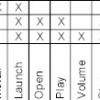People & Teams
Articles
|
Venus and Mars in the Workplace In the "Venus and Mars" series of mainstream relationship books, author John Gray attests that differences in outlook and inherited traits account for relationship problems between genders. His position is that men and women come from inherently different places and therefore approach things from inherently different perspectives. In this week's column, Carol Dekkers explores how some of the issues in software development might be similarly rooted in differences between the software development and customer communities. |
Carol Dekkers
January 31, 2003 |
|
|
Where Are the Testers in XP? With Extreme Programming, programmers are taking responsibility for writing their own unit tests. What work does this leave for testers? Some people think that XP saves costs by eliminating the need for testers. Does programmer testing really take the place of tester testing? In this column, Bret Pettichord offers ways for testers to provide value to XP teams. |
||
|
Stop Destroying My Team with Bad MBOs It's 2003, and you're a manager casting about for a good New Year's resolution. Sure, going to the gym, quitting cigarettes, cutting down on the cheeseburgers-those are all good resolutions for you personally. But how about a resolution that helps you professionally, and will help everyone who works for you? How about resolving to stop destroying your team with bad MBOs? Find out how, in this week's column by Rex Black. |
||
|
Computer Bribery "There's a little something in it for you if the product is ready for testing next week." To make a date, have you ever resorted to offering or accepting such a payout? You don't often encounter the technique in management books, but we all know that people can be motivated by money. In this week's column, Sheryl Smith imagines a scenario where the equipment is "bribed" to speed delivery. Read on for the point of view from inside the computer. |
Sheryl Smith
December 26, 2002 |
|
 |
Streamlining the Test Process When building large test suites, one problem that crops up is test case redundancy. Test suites are especially vulnerable to this when many members of the test team are writing test cases. The likelihood of one engineer writing test cases that are somewhat covered by another engineer's is very high. This results in duplication of effort when executing the tests. I will present some strategies for avoiding this problem when constructing the test suite, as well as methods for maximizing efficiency with your test suite. |
Andrew Lance
December 17, 2002 |
|
What Does Your Title Say About Your Job? "That which we call a rose by any other name would smell as sweet." True, sloppy naming schemes may be all right in some cases. But as Johanna Rothman explains in this column, when software professionals are looking for a job, hiring, or negotiating work assignments, it's crucial for their job titles to accurately portray the work they do. Read on to see if you agree with the definitions Johanna assigns to the more common QA-related job titles. |
||
|
To Automate or Not? Getting the most out of automation is a process of evaluating the test goals and matching the right tool for the job. Sometimes test automation solves problems, but often it creates more work than it alleviates. When does automation help, and when does it hurt? Here are a few ideas for evaluating your test goals and making sound decisions on whether or not to employ automation to solve them. |
Andrew Lance
November 26, 2002 |
|
|
Brewing Trouble Admit it: When you're faced with a lengthy checklist for testing, you're tempted to skip steps. Some of the items aren't really necessary, are they? They might be so obvious that there's no need to include them in the list. In this column, Elisabeth Hendrickson offers some advice on constructing useful checklists that are brief but complete. |
||
|
Keeping a Project Journal If you think that keeping a journal is only for adolescent girls, read this week's column by Lee Copeland. Among other things, he suggests that a project journal helps you stay organized; teaches you what not to do next time; and makes it easier to explain what went wrong in a troubled project when you have to defend yourself. He also gives tips on being a good recorder. |
||
|
What To Do When What You're Doing Isn't Working If at first you don't succeed, try, try again. But if you keep trying the same things that worked for you in the past, and they're not working for you now, you might never succeed. In this column, Eileen Strider shows you how to tap new sources for fresh approaches to tackling problems. |
Eileen Strider
September 26, 2002 |







